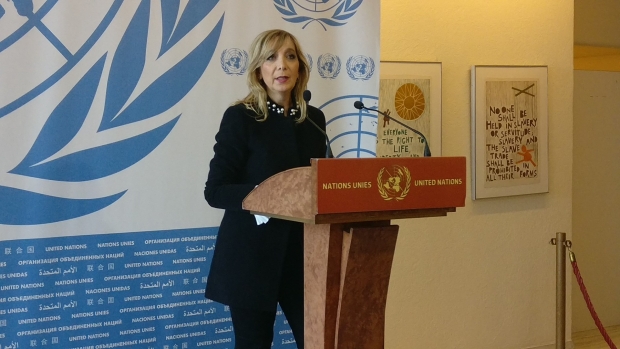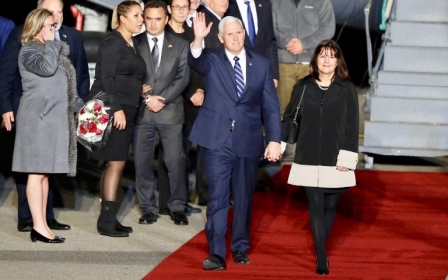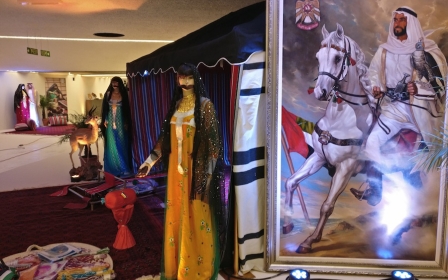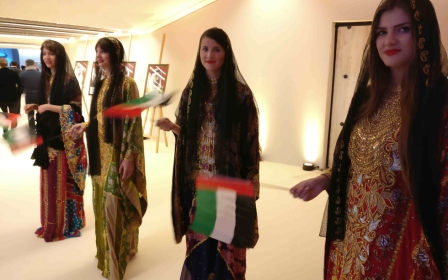'Apartheid state': Israel condemned by South Africa at UN
GENEVA - A fiery exchange between Iran and Israel broke out at the United Nations in Geneva on Tuesday, while South Africa labelled Israel an “apartheid state” over its treatment of Palestinians.
The exchange came during a major review of Israel’s human rights record by more than 100 country delegates, including the 47-strong United Nations Human Rights Council which spearheaded the session.
Countries were given just over a minute to suggest recommendations, which Israel would later decide whether to accept.
Known as a Universal Periodic Review (UPR), the assessment is held every five years and is seen as a barometer of the state of human rights in a given country.
The rights of Palestinians and the treatment of children were at the top of recommendations put forward by several countries at what was a largely uneventful session held in the Palace of Nations overlooking Lake Geneva in Switzerland.
But when it was South Africa’s turn to speak, sparks began to fly.
“Israel is the only state in the world that can be called an apartheid state,” the South African delegate said. “We remain deeply concerned at the denial of the right of self-determination to the Palestinian people, in the absence of which no other human right can be exercised or enjoyed.”
The Israeli delegation fired back: “We came with the intention of having a serious discussion of human rights issues. Unlike what some delegations seem to believe, the Israeli-Palestinian conflict will not be solved in the Human Rights Council and certainly not during today's UPR.
"We ask that delegates stick to the appropriate language of the UN, and that the discussion is steered in the direction of human rights rather than politicised issues.”
Later in the session, Israel rebuked its regional arch-rival, Iran, after the Iranian delegation referred to it as “the Israeli regime”.
“It is bad enough that the representative of the Islamic republic of Iran with its dismissal of human rights pretends to be in a position to give Israel lessons in human rights,” a member of the Israeli delegation said, before calling on Iran to refer to Israel by its official name.
In a strongly worded statement, Iran, which does not recognise Israel as an official state, also demanded that it end its “continuous atrocities through the enormous destruction of civilian property in Gaza Strip” and the “forced displacement of civilians, arrest and detention of Palestinians”.
The Israeli delegation was not expecting an easy ride. It had failed to turn up to its UPR in 2013, and has had a difficult relationship with the Human Rights Council, which has passed more resolutions condemning it than the rest of the world combined.
For its part, Israel has accused the council of bias, arguing that the UN body is politicised and claiming that other countries are pointing the finger at Israel to create a smokescreen for their own rights abuses.
“Clearly some countries will choose to take advantage of today’s discussion to wage political attacks against Israel,” Israeli ambassador to the UN Aviva Raz Shechter said in her opening remarks.
Country delegations raised the issue of Palestinian rights, and when given the opportunity to speak, Israel did little to address their concerns.
The harshest criticism came from other Middle East countries, with Israel’s allies in the West taking a softer stance.
Jordan expressed deep concern at violations committed against Palestinians and called on Israel to respect the historic status of the Al-Aqsa mosque in Jerusalem.
The United States, Israel’s closest ally, praised it for its commitment to “democratic traditions and values” and requested additional resources to improve the conditions of Palestinian citizens of Israel.
France, another close ally, requested that Israel bring its practice of administrative detention - where suspects are held without charge for an indefinite amount of time - in line with international standards.
The State of Palestine delegation also weighed in, demanding an end to the “colonial occupation against Palestinians” and a recognition of a right of return for them.
Rights groups condemn Israel
Human Rights Watch and other rights groups that attended the session, and who had submitted documents as part of the UPR process, also criticised Israel’s approach.
"Israel's professed commitment to human rights during its UN review is belied by its unwillingness to address human rights violations in the context of the occupation, the rights of Palestinians, or illegal settlement activity," said John Fisher, Human Rights Watch's Geneva Director.
"This head-in-the-sand approach only reinforces the need for continued international scrutiny to ensure that Israel complies with its basic human rights obligations."
Ines Osman, legal coordinator at the Geneva-based Alkarama Foundation, said: “Israel focused mostly on internal policies and did not raise any issue related to the Occupied Palestinian Territories."
“The specificity of Israel’s review is that its human rights record needs to be assessed not only in Israel but also in the territories it occupies. What was striking is the fact that Israel did not address this issue at all but - and that is positive - most countries did.
“Ultimately, as long as the situation of occupation remains, human rights violations will continue to be perpetrated by Israel and one can wonder how efficient the UPR can be when what lies behind is the pressing need to find a political solution (to the conflict)."
Sarah Pritchett, a spokesperson for Euromed, a Geneva-based human rights monitor, warned against the "politicisation" of the country review process, but said that Israel’s failure to implement recommendations made at previous UPR sessions had led to frustration.
“We’re not seeing anything particularly new coming from the different countries compared with previous reviews. What we are seeing is quite a lot of frustration particulary because it’s the third review and a lot of countries are coming back with the same remarks.
“States are taking the political route, going with their state policy towards that country. What we want to see is more focus on human rights but as separate from political issues. People have to take the priority.
“Certainly there have been some accomplishments in areas of rights of disabled and LGBT people. But they are on paper improvements; we’re not seeing enough mechanisms in place to make those improvements substantial.”
New MEE newsletter: Jerusalem Dispatch
Sign up to get the latest insights and analysis on Israel-Palestine, alongside Turkey Unpacked and other MEE newsletters
Middle East Eye delivers independent and unrivalled coverage and analysis of the Middle East, North Africa and beyond. To learn more about republishing this content and the associated fees, please fill out this form. More about MEE can be found here.





